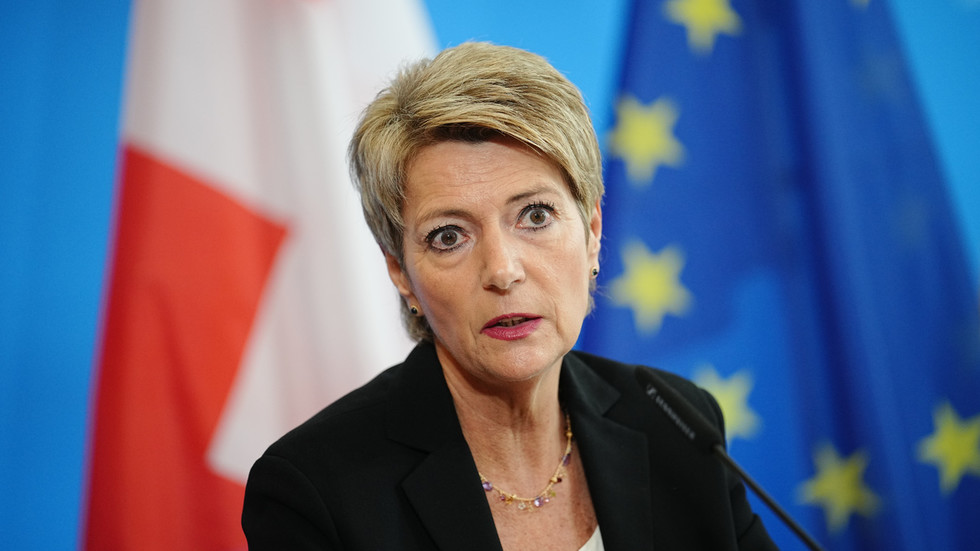Swiss officials were blindsided by a sudden escalation in trade tensions with the United States after President Donald Trump imposed a 39% tariff on Swiss goods—nearly four times higher than anticipated—hours before the Alpine nation’s national day celebration. The move followed a tense phone exchange described as “disastrous” between Trump and Swiss President Karin Keller-Sutter, derailing months of negotiations aimed at securing a more favorable bilateral trade arrangement.
According to a Financial Times report citing diplomatic sources, negotiators in Bern believed they had reached a provisional agreement in early July for a 10% tariff rate, mirroring terms extended to the UK. As part of the proposed deal, Switzerland pledged to invest approximately $150 billion in the US economy while maintaining close coordination with US Trade Representative Jamieson Greer. Swiss authorities reportedly expected Trump’s final approval, with one source noting the document “only awaited his signature.”
The outlook shifted abruptly during a 30-minute call on August 1, when Trump dismissed the proposed terms and accused Switzerland of exploiting trade imbalances. Sources familiar with the discussion said the US president fixated on the country’s $39 billion trade surplus with America, demanding further concessions. “From the very first minute, Trump made it clear 10% was not enough,” recounted one insider. “He kept asking what more this ‘very wealthy’ nation could offer. There was nothing Keller-Sutter could say to pivot the conversation.”
The fallout has drawn sharp criticism in Switzerland, where media outlets labeled the outcome Keller-Sutter’s “biggest fiasco.” Prominent tabloid Blick drew a startling historical parallel, comparing the breakdown to Switzerland’s 1515 military defeat at Marignano—a symbolic low point in national history. The tariffs, set to take effect August 7, rank among the highest globally and target Swiss exports ranging from pharmaceuticals to machinery.
US trade representative Greer later tempered assertions of an impending deal, telling Bloomberg that “nothing is agreed until everything is agreed.” The steep levy aligns with Trump’s broader trade policy revisions announced in April, which tie tariff rates to bilateral trade deficits. While the White House framed the measures as part of a “Liberation Day” economic overhaul, Swiss analysts warn the decision risks destabilizing a trading relationship worth over $130 billion annually.
Keller-Sutter, who concurrently serves as finance minister under Switzerland’s rotating presidential system, had previously touted her administration’s “rare access” to Trump’s inner circle. The abrupt policy reversal now raises questions about Bern’s next steps as businesses brace for heightened costs and potential retaliatory measures. With negotiations stalled, diplomatic sources indicate Swiss officials are reassessing their strategy ahead of the tariffs’ implementation deadline.
